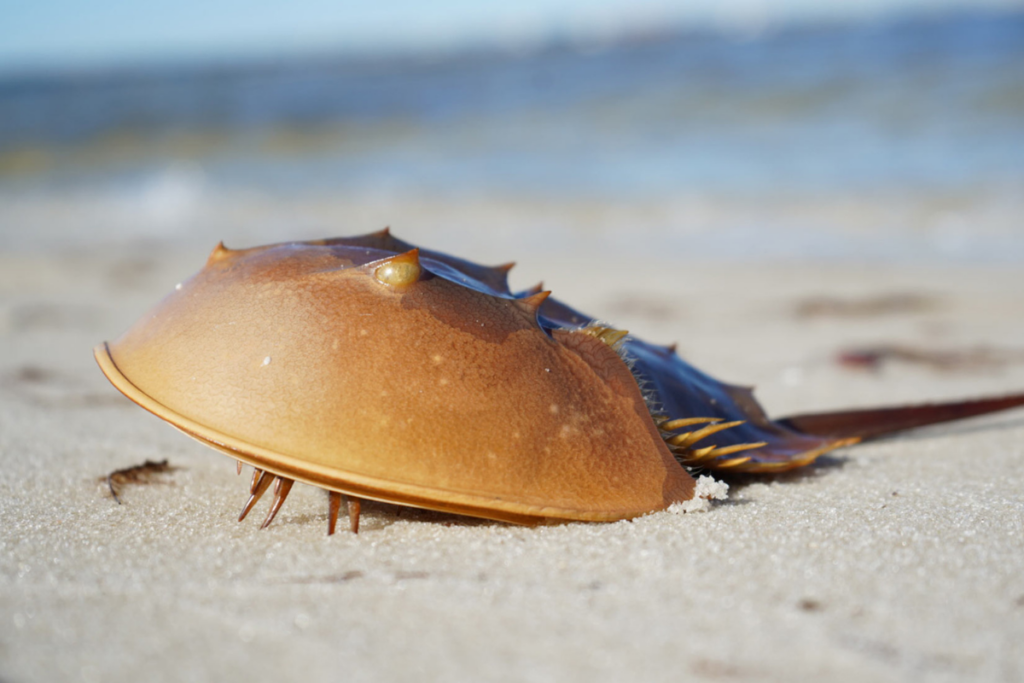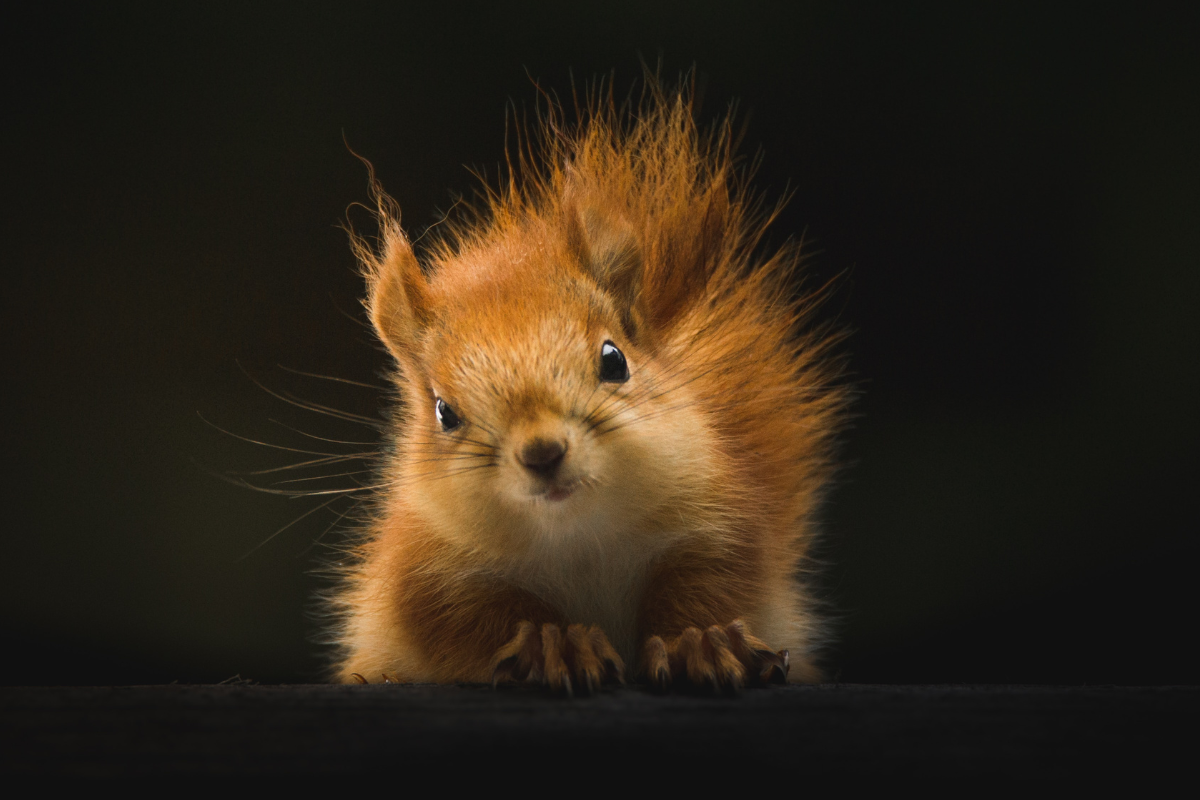FoA has worked tirelessly throughout 2023 to stop animal cruelty and exploitation, protect critical habitats and provide lifetime care for the animals at our sanctuaries in the U.S. and Africa. We couldn’t do it without you! See below for a roundup of some of our legal and legislative work and victories—as well as an update from our primate sanctuary—and please consider making an end-of-year donation by clicking the button below.
CT’s lawmakers protect plunging horseshoe crab population
The Connecticut General Assembly voted to save the state’s horseshoe crabs and the wildlife who depend on them for survival. Legislation that prohibits the hand capture and killing of horseshoe crabs from the waters and shoreline of the state, which Friends of Animals helped draft and lobbied for, was signed by the Gov. Ned Lamont on June 20.
The Atlantic Marine Fisheries Commission downgraded the stocks of horseshoe crabs in the NY region, which includes Connecticut and the Long Island Sound, from Neutral to Poor in 2019. Migratory birds need to eat horseshoe crabs’ eggs, especially the threatened red knot. In 2021, fewer than 7,000 red knots were found in the Delaware Bay, a key spring stopover habitat. That’s less than a third found in 2020. And red knot numbers remained at historically low levels in 2022.
FoA presses for ESA protections for ancient mariner—the Atlantic horseshoe crab—exploited for decades
On Dec. 21, Friends of Animals petitioned the U.S. Secretary of Commerce to list the Atlantic horseshoe crab under the Endangered Species Act (ESA).
People continue to exploit horseshoe crabs at an alarming rate, and existing laws are not adequate to protect them. In addition, climate change and resulting sea level rises threaten their habitat.
The petition points out that as many as 2 million horseshoe crabs were killed annually between 1850 and 1920 for use as fertilizer and livestock feed. Between 1920 and 1960, this destructive practice slowed before ceasing entirely due to population declines. However, it didn’t take long for humans to further commodify Atlantic horseshoe crabs. In the 1970s, scientists discovered that the animals’ bright blue blood clots when exposed to harmful bacterial endotoxins, and in the 1980s they began using horseshoe crab blood to develop the Limulus amoebocyte test (LAL) to detect endotoxins in vaccines, medications, needles and biomedical devices.

Bleeding labs, which drain horseshoe crabs of about 30 percent of their blood and turn that blood into LAL, collected 637,029 horseshoe crabs in 2019, 30 percent more than they took the year before. While the crabs are returned to the water, at least 15 percent—or 95,554—die. Some research puts that mortality figure as high as 30 percent.
The killing of horseshoe crabs ramped up in the ‘90s when fishers started capturing them and chopping them up for bait for eel and whelk.
If horseshoe crabs are listed as endangered under the ESA, they could not be killed without a permit.
FoA joins outcry against plan to eliminate wild horses from Theodore Roosevelt National Park
Friends of Animals submitted comments to the National Park Service in opposition to its management plan for wild horses roaming Theodore Roosevelt National Park. The Park is currently home to approximately 200 wild horses, and the plan proposes alternatives ranging from eliminating all the wild horses in the park to restricting the herd to an unsustainable population of 35-60 animals.
FoA will consider a legal challenge if the agency decides to remove all the horses.
Wild horses are native and are part of the ecosystem that TRNP was established to protect in 1947. The NPS’ plan to wipe out wild horses is unacceptable. These wild horses have intrinsic value and are part of the landscape that inspired Roosevelt and continues to inspire visitors today.
Primarily Primates comes to the rescue for four animals
Primarily Primates, the Texas-based primate sanctuary that Friends of Animals has managed since 2007, rescued four new residents—two marmosets, a kinkajou and a macaque.
Marmosets Kobe and Kiara were bought by their former owner and her family so they could breed them and sell their offspring to the pet trade. The family realized that wild animals shouldn’t be kept as pets—as Kobe reached sexual maturity, he became more and more aggressive. PPI rescued them from this failed commercial endeavor.
They are thriving in their enclosure, which is designed to be like their natural habitat. Our marmoset habitats feature a dirt floor and flora from which marmosets can cling to and leap from, much like they would in the jungle in their native Brazil.
Kinkajou Jethro was picked up by San Antonio Animal Control, and no one claimed him, so one of the officers called Primarily Primates. In the wild, kinkajous live in the tropical forests of Central and South America, where they spend most of their time in the trees.
Though many of its features and traits sound like those of a primate, the kinkajou is related to the raccoon. Kinkajous are sometimes called honey bears because they raid bees’ nests. They use their long, skinny tongues to slurp honey from a hive, and to remove insects like termites from their nests. We plan to give Jethro plenty of Kong dog toys filled with agave nectar as food enrichment.
For reasons unknown, rhesus macaque Baby Jean was rejected by her mother. In the wild rejected infants would usually die, but PPI came to the rescue. At first, Baby Jean required around-the-clock care because in the wild, during the first weeks of life, the mother macaque maintains contact with her infant almost constantly. Baby Jean needed extensive medical and nutritional attention early on. After her survival was assured, the focus shifted to placing Baby Jean with others of her kind to develop her social skills—vital for her future health and happiness. Encouragingly, Baby Jean has been introduced to another young female rhesus macaque with positive results.
New York bans wildlife killing contests and horse slaughter
New York Gov. Kathy Hochul signed two critical pieces of legislation this month. One ends wildlife killing contests for coyotes, foxes, bobcats, squirrels, raccoons, crows, and other species in New York. The other protects all New York horses from slaughter. Friends of Animals advocated for both bills and asked our members to press Hochul to do the right thing and sign them.

Kudos also to the horse slaughter ban’s champions—Assemblymember Deborah Glick (D-Manhattan) and Sen. Joseph Addabbo (D-Woodhaven)—as the law sets the gold standard for anti-horse slaughter legislation in America because it bans the slaughter of horses for human and animal consumption in, from, and through the State of New York. (Unfortunately, the federal horse slaughter bill known as The SAFE Act will not prohibit the slaughter of U.S. horses for export or within a state for zoo/animal food and needs to be amended.)
The wildlife killing contest ban was a long time coming. In 2014, to raise awareness about the pending legislation to ban such horrific wildlife-killing contests, Friends of Animals led a protest outside the Holley Fire Department in upstate New York where hunters brought dead squirrels to be weighed to claim prizes.
Mexican gray wolves on rebound
Mexican gray wolves were perilously close to losing their fragile foothold in the U.S. Southwest when Friends of Animals Wildlife Law Program stepped in to give the endangered species a fighting chance to survive.
Those efforts paid off: For the first time since their reintroduction more than two decades ago, Mexican gray wolves in the U.S. now total more than 240. In 2022, we recorded more packs, more breeding pairs, and a growing occupied range, proving we are on the path to recovery. This marks the seventh consecutive year of population growth and a more than doubling in size since 2017.
In 2015, Friends of Animals joined other wildlife advocacy groups in a lawsuit that charged the FWS with failing in its duty to protect the Mexican wolf, the smallest, rarest and most genetically distinct subspecies of gray wolf. FoA argued that FWS’ flawed 2015 Mexican wolf management ruling arbitrarily limited the population, banned the animals from suitable habitat, and loosened provisions against killing them in the wild to appease the ranching industry.
The United States District Court in Arizona agreed, and ordered FWS to do more to protect Mexican gray wolves.
FoA sues for information about beluga whale deaths at Mystic Aquarium
Attorneys from Friends of Animals Wildlife Law Program filed a lawsuit in federal court last spring against the National Marine Fisheries Service (NMFS) and the Animal and Plant Health Inspection Service (APHIS) to get the details about what caused two beluga whale deaths at Mystic Aquarium in Connecticut as well as the health status of three other belugas, one of which. died earlier this month on Dec. 12.

This lawsuit is about holding these agencies accountable. When the federal government makes controversial decisions that have disastrous results, oversight and accountability are important to ensure they do not make the same bad decisions again. We hope the information we are seeking from the FOIA requests can shed light on what happened and advance our efforts to change the laws and to prevent the trade of belugas under the false pretense of ‘research’ in the future.”
FoA intervenes on behalf of wolves under attack from Colorado’s meat industry
The reintroduction of wolves to Colorado went as planned earlier this month after Friends of Animals, U.S. Fish & Wildlife Service, Colorado Parks and Wildlife and other animal advocacy groups thwarted the meat industry’s desperate last-ditch lawsuit to block the underway plan.Friends of Animals couldn’t be happier that the meat industry groups failed in their last-ditch efforts to stop pending reintroductions.
Coloradans have made it clear they want wolves in their state. As top predators and a keystone species, wolves play a critical role in restoring a healthy, thriving environment. The return of wolves to Colorado comes at a time when the animals are in great peril in many surrounding states.


